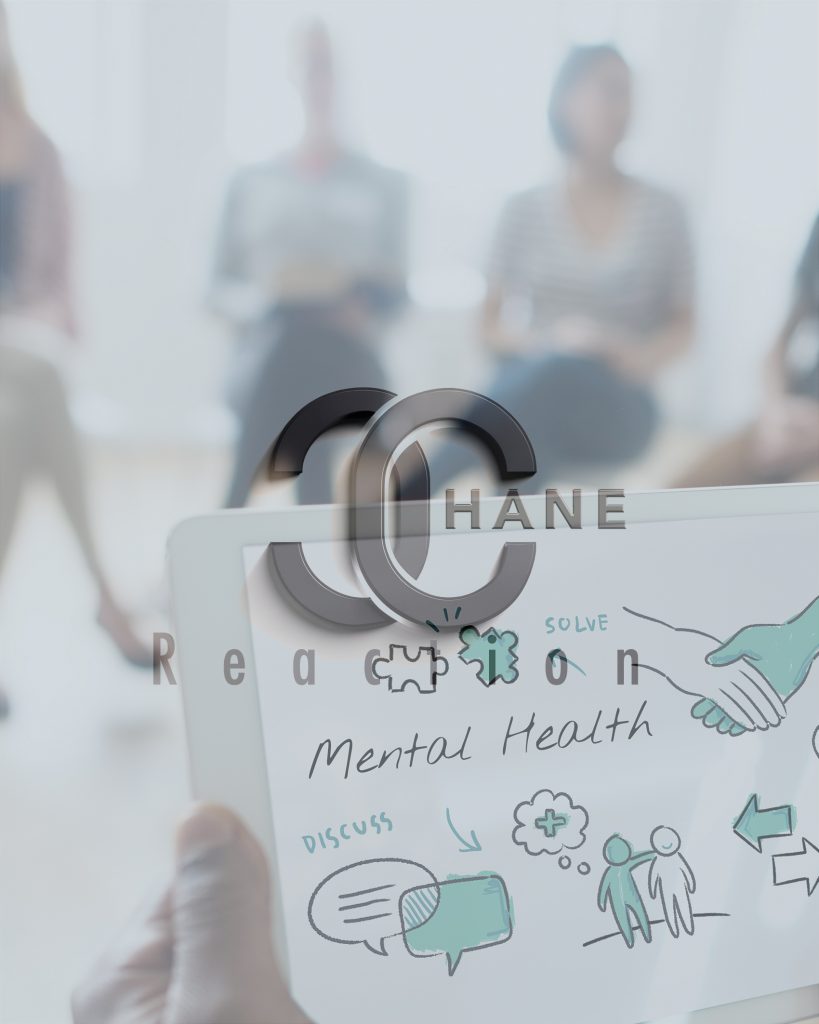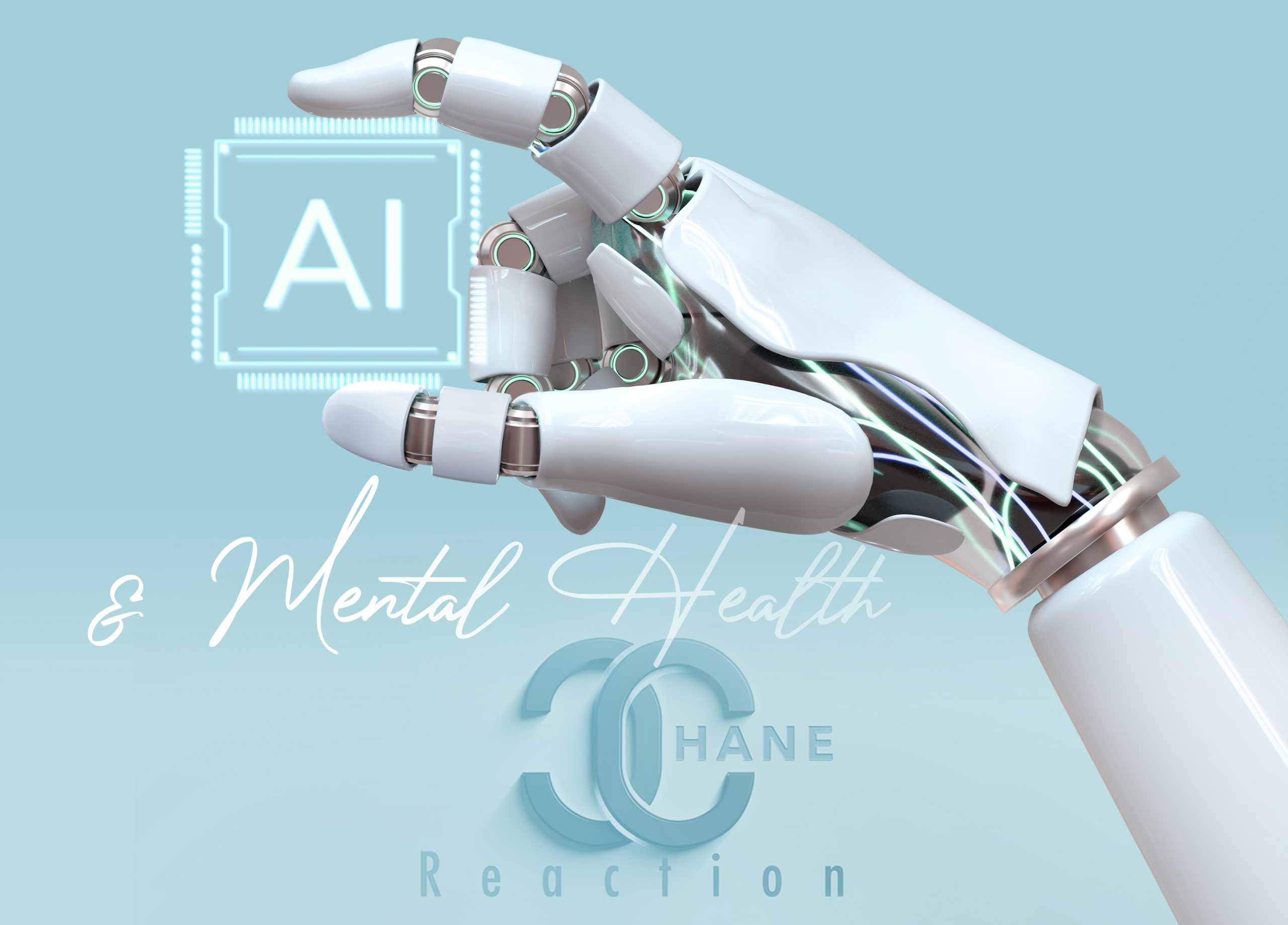
Navigating the intersection of AI and mental health:
The rapid evolution of Artificial Intelligence (AI)
How Will The Emergence of AI affect psychology?
A Closer Look
The rapid evolution of Artificial Intelligence (AI) has opened up new possibilities across various sectors, and mental healthcare is no exception. With the growing demand for mental health support and the increasing adoption of technology in our daily lives, AI is poised to play a crucial role in improving accessibility, efficiency, and the overall quality of mental healthcare services.
The transformative potential of AI in mental health
AI brings a range of applications that can significantly impact mental health support:
- Early detection and personalized treatment: AI algorithms can analyze various data sources, including speech patterns, text, facial expressions, and electronic health records, to identify potential signs of mental health disorders and predict the risk of developing certain conditions. This allows for earlier intervention and more personalized treatment plans tailored to individual needs. AI tools can even analyze genetic information to predict responses to medications, improving treatment efficacy and reducing trial-and-error in prescribing antidepressants, according to DelveInsight.
- Expanded access to support: AI-powered tools, like chatbots and virtual therapists, offer 24/7 support, helping to overcome geographical and time constraints that often limit access to traditional mental health services. These platforms can provide immediate support, offer psychoeducation, and even deliver cognitive behavioral therapy (CBT) techniques through interactive conversations, according to Built In.
- Improved patient engagement and tracking: AI can assist in enhancing patient engagement through continuous monitoring of behavioral patterns, mood tracking, and personalized reminders, notes Built In. Wearable devices and apps can collect real-time data on sleep patterns, physical activity, and social interactions, providing valuable insights for both patients and clinicians.
- Supporting mental health professionals: AI can streamline administrative tasks like scheduling, documentation, and progress tracking, freeing up valuable time for therapists to focus on direct patient interaction. AI can also provide data-driven insights and recommendations to guide therapists in making informed treatment decisions.
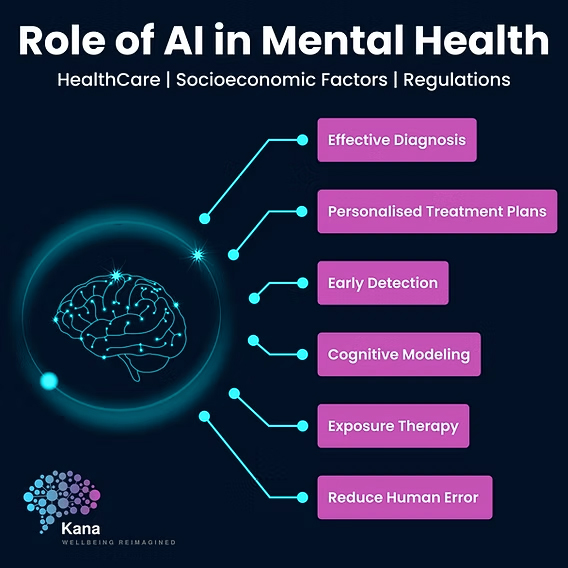
Addressing the critical challenges and considerations
While the potential of AI in mental health is immense, it’s essential to acknowledge and address the challenges associated with its implementation:
- Ethical and privacy concerns: AI systems often rely on vast amounts of sensitive personal data, raising significant concerns about data security, privacy breaches, and the need for robust safeguards to protect patient confidentiality. Transparent data governance and strict security measures are crucial, says Built In.
- Algorithmic bias: AI algorithms are only as unbiased as the data they are trained on. Biased datasets can perpetuate existing health disparities and potentially lead to inaccurate diagnoses and unequal treatment recommendations, particularly for marginalized populations. Ensuring diversity in training data and implementing fairness assessments are vital steps in mitigating bias.
- Lack of the human touch: While AI can provide support and information, it cannot fully replicate the empathetic and personal connection that is fundamental to the therapeutic relationship. The human element in therapy, with its nuances of understanding, judgment, and intuition, remains irreplaceable, notes Psychology Today.
The path forward: Responsible and ethical integration
Navigating the future of AI in mental health requires a thoughtful and collaborative approach. It is crucial to:
- Develop robust regulatory frameworks: Clear guidelines and regulations are necessary to ensure the safe, ethical, and effective development and deployment of AI tools in mental health, according to the American Psychological Association (APA).
- Prioritize transparency and accountability: Users should have a clear understanding of how AI systems work, their limitations, and how their data is being used. Developers and providers must be held accountable for the outcomes and potential risks of AI interventions.
- Foster collaboration between AI and human expertise: AI should be seen as a complementary tool that enhances, rather than replaces, human judgment and empathy in mental healthcare. A hybrid approach, leveraging the strengths of both AI and human therapists, holds the key to delivering optimal care.
- Invest in AI literacy and education: Mental health professionals need to be equipped with the knowledge and skills to understand, evaluate, and integrate AI tools into their practice responsibly and ethically.
By following these principles, the transformative potential of AI can be used to create a future where mental healthcare is more accessible, personalized, and effective for everyone.
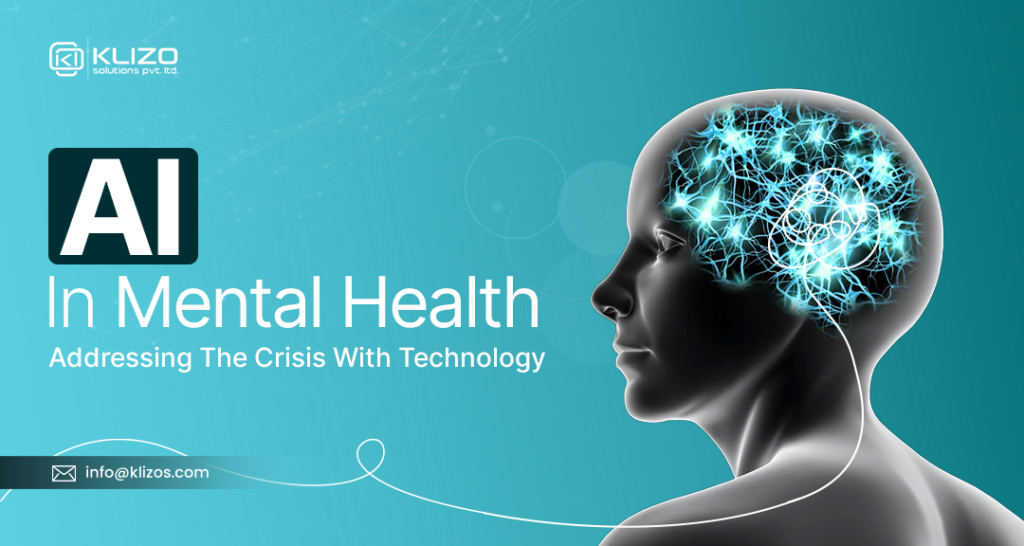
Understanding the future is crucial for success
Especially in vital areas such as mental health care. Artificial intelligence (AI) is transforming this field at an incredible pace, offering both significant opportunities and important challenges.
The mental health landscape today
Statistics show that 1 in 5 adults and 1 in 6 young people in the U.S. experience mental health disorders annually. Globally, mental health disorders are a major contributor to the disease burden, with depression being the leading cause of disability worldwide. Despite this, 85% of individuals with mental health issues do not receive treatment. This is often due to provider shortages and barriers like stigma, high costs, and limited access, especially in low- and middle-income nations.AI: a potential game-changer
Artificial intelligence, with its ability to process vast amounts of data and identify complex patterns, offers a powerful tool to address these challenges and potentially revolutionize mental health care.
AI is a potential beacon of hope.

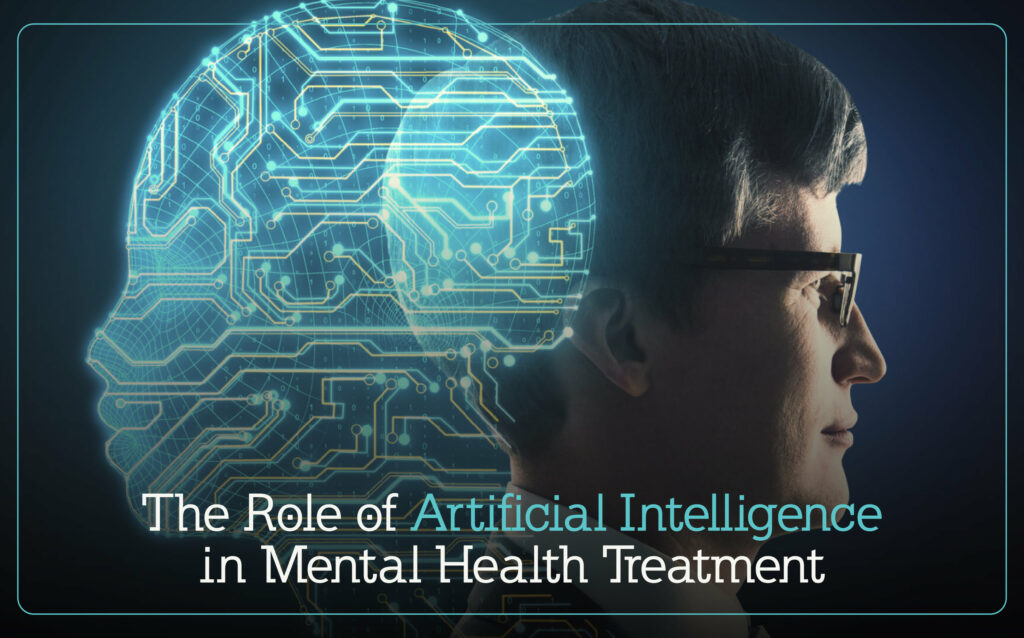
Key ways AI is being integrated into mental health care
- Early detection and prevention: AI can analyze data from various sources (electronic health records, social media, wearable devices) to detect subtle behavioral or physiological changes that may indicate the onset of a mental health condition, enabling earlier intervention.
- Personalized treatment plans: By analyzing individual patient data, including genetics, lifestyle, and treatment responses, AI can help tailor personalized interventions, improving the chances of recovery and reducing the risk of adverse effects associated with a one-size-fits-all approach.
- Virtual assistants and chatbots: AI-powered tools can provide 24/7 support, psychoeducation, and even deliver evidence-based therapies like cognitive behavioral therapy (CBT) techniques through conversational interfaces. This potentially increases access to care, reduces stigma, and bridges the therapist shortage gap.
- Enhancing traditional therapy: AI can support human therapists by automating tasks like note-taking and analyzing patient data to provide insights and improve the efficiency of therapy sessions. AI-driven platforms can analyze patient emotions in real-time during teletherapy sessions, offering valuable insights to therapists.
- Monitoring and follow-up: Wearable devices and AI algorithms can continuously monitor physiological and behavioral patterns, offering early insights into changes in mental health status and facilitating long-term care management.
- Reducing stigma and promoting awareness: AI can be used to filter and share accurate mental health information and identify public sentiment around mental health topics, helping to combat misinformation and promote understanding.
Challenges and the path forward
While the potential of AI in mental health is undeniable, it’s crucial to acknowledge the challenges and ensure responsible and ethical implementation.
- Data Privacy and Security: Protecting sensitive mental health data is paramount, requiring robust security measures and stringent adherence to regulations like HIPAA.
- Algorithmic Bias: Biases in training data can lead to disparities in diagnosis and treatment for different demographic groups, necessitating diverse datasets, fairness assessments, and bias mitigation strategies.
- Human Oversight and Transparency: While AI can augment human capabilities, it should not replace human judgment and empathy in mental health care. Ensuring transparency in how AI systems make decisions is also vital for accountability and trust.
- Maintaining the Human Element: The human connection in therapy is crucial, and AI should complement rather than replace this essential aspect of mental health care.
The future of mental health care lies in the thoughtful and responsible integration of AI. Innovations should prioritize patient well-being, ethical considerations, and the preservation of the essential human element in care.
Disclaimer: AI holds immense potential to enhance mental health care, but it’s a tool and not a substitute for professional mental health services, according to Psychology Today. Always consult with a qualified mental health professional for diagnosis and treatment.
Take Action Today!
Are you mentally prepared for this season? Don’t hesitate to reach out. Together, we will ensure you successfully navigate the challenges ahead.
Sharing is Caring
Awareness about Chane Reaction LLC's Solutions to Mental Health is awaiting your share!
Focused on the Focus
At Chane Reaction LLC, we focus on precisely what needs to be focused on




